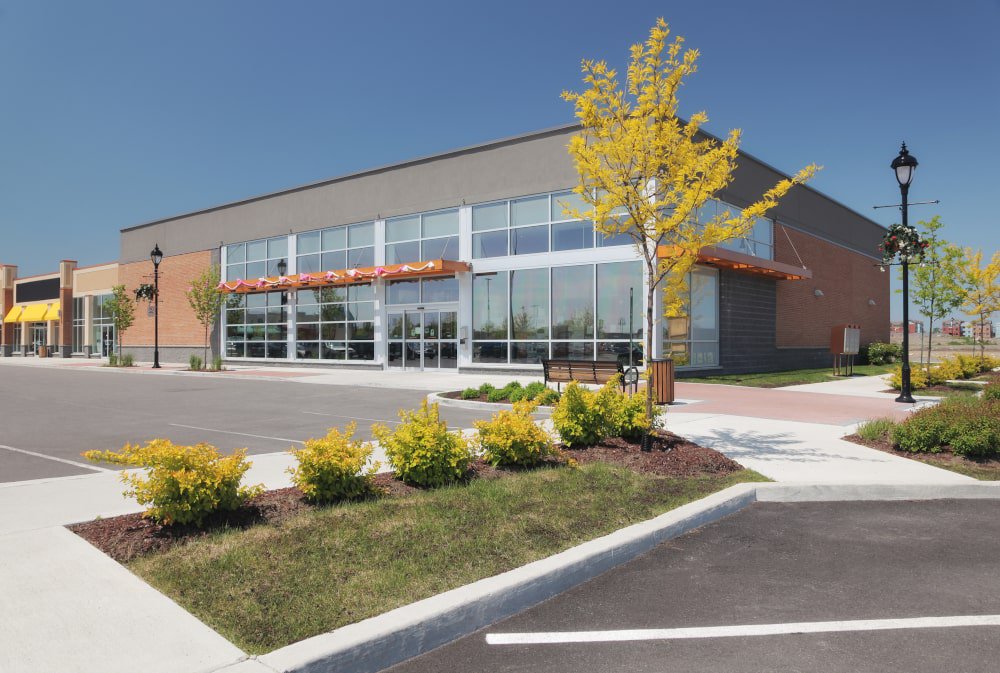How Do I Buy My First Commercial Property?

Buying commercial property is a costly undertaking. It is important for investors to exercise due diligence every step of the way to ensure they get their hands on the right property at a fair price.
In this article, we’ll explain how to buy your first commercial property in Canada:
Understand the Different Types of Commercial Properties
Costs and potential returns largely depend on the type and location of property. Some of the most popular types include:
- Office space
- Retail space
- Multifamily units
- Factories and warehouses
All these have their own pros and cons. Choose an option according to your requirements and zero in on a target location. You can choose to invest in your town or look for good properties in other cities or states.
Urban cities like Toronto, and Vancouver are extremely popular due to a large number of immigrants to Canada settling there. The demand for offices and shops is on the rise in these cities.
Experts, however, suggest going for a property you can easily visit. Investors who wish to invest elsewhere often hire an agent or asset management firm to take care of it.
Know How Much You Can Afford to Spend
Determine how much money you have to invest into the property. Consider both the initial down payment and closing costs, and also any potential investment into renovations or upgrading the property, along with investment into marketing any vacancies associated with managing the property.
This is important because properties might not always be used as-is. Renovations are often required to restore and safeguard properties and attract tenants and buyers.
Research average building costs and the potential for urban renewal to determine your budget. You will have to prepare your documents based on your budget and investment strategy.
Investors make buying decisions based on a number of strategies and goals such as:
- Land Banking : Hoping that the land will appreciate in value
- Development : To build property on the land purchased
- Fix and Flip : To renovate a property and sell it at a profit
- Owner-Occupied : Use the space to run your business
- BRRRR : Short for Buy, Rehabilitate, Rent, Refinance, Repeat
Start Searching the Market
Once you have selected your budget and desired asset type, it is time to start searching the market for available properties. You can search for properties online or work with an agent who will shortlist commercial properties based on your requirements.
In addition to this, you can also turn to a real estate investment trust (REIT). It can be defined as a hedge fund that concentrates on real estate.
REITs are managed by experienced professionals who invest in different ventures using money from investors who purchase shares. While riskier than government bonds, REITs tend to be safer than alternatives like shares, and do not require millions of dollars to invest into.
Once you find a property, gauge if it’s reliable. There are many tools used to calculate the worth of a property. One of the most reliable tools is the Gross Rent Multiplier (GRM), which helps figure out the expected returns from a property.
Here’s how it is computed:
Asking Price: $250,000
Monthly Rent: $2,000
GRM = $250,000/($2,000 x 12) = 10.4
A GRM of 10 or less is considered good. A higher amount means the property can be a risky investment.
Perform Due Diligence
Once you have selected a commercial property, research zoning and title documentation and review any leases and surveys that apply to it.
Inspect the property and make sure it is in the condition you expect it to be in. We recommend hiring professionals for the job, and your mortgage broker can help you find the right specialists. Most lenders require applicants to submit valid inspection documents prepared by reliable and reputable sources.
Secure Financing for Your Commercial Property
Come up with a plan as to how you will be generating income from your new commercial property. If it is owner-occupied, be prepared to prove and explain how you currently generate income through your business, or how you intend to start generating income through the business that you will be running out of the property.
If it is an investment property, are you buying a property that is already tenanted so that you will be owning it and collecting the cash flow, or will you be redeveloping, renovating, or upgrading the property in order to attract new tenants?
Once a plan is created, if your new commercial property will be owner-occupied and you have less than 25% to invest as a down payment on the purchase price, and you are seeking low-rate financing from a bank lender, then you will need to prove that your business has a strong financial track record.
If your commercial property will be owner-occupied and you have more than 25% available for the down payment, you would still need to show that your business has a good financial record, but you will have even lower commercial mortgage rates available to you.
If your commercial property will be used as an investment property, you will need to have a minimum of 25% as a down payment if you are hoping to obtain financing at a reasonable interest rate through an institutional lender.
You should know what your debt servicing coverage ratio will be with the new commercial property purchase. The right commercial mortgage broker will help you with all of the necessary calculations and with gathering the needed information for your commercial mortgage application.
Banks typically require a debt servicing ratio of at least 1.25 times the monthly mortgage payment. However, alternative lenders can accept debt servicing ratios as low as the amount of the actual monthly mortgage payment, a 1 to 1 ratio.
To understand exactly what debt servicing ratios will be required for you and what your actual debt servicing ratios are, based on the criteria of specific lenders, you should speak with a qualified commercial mortgage broker. They can help you realize potential add backs and other factors that you can benefit from to help you qualify for the commercial mortgage that you need.
If you are seeking commercial financing from an institutional lender, you need to have a credit score of at least 680.
We also have access to many private mortgage lenders who will lend to a larger spectrum of commercial mortgage borrowers based on less strict criteria. However, these private mortgages come with higher interest rates and additional fees.
Once again, based on your current financial situation and your goals, an experienced commercial mortgage broker will be able to help you navigate the different lender options that are available to you in order to ensure that you obtain the best mortgage for your needs.
Check our website for more tips on commercial investing and a list of reliable lenders.





